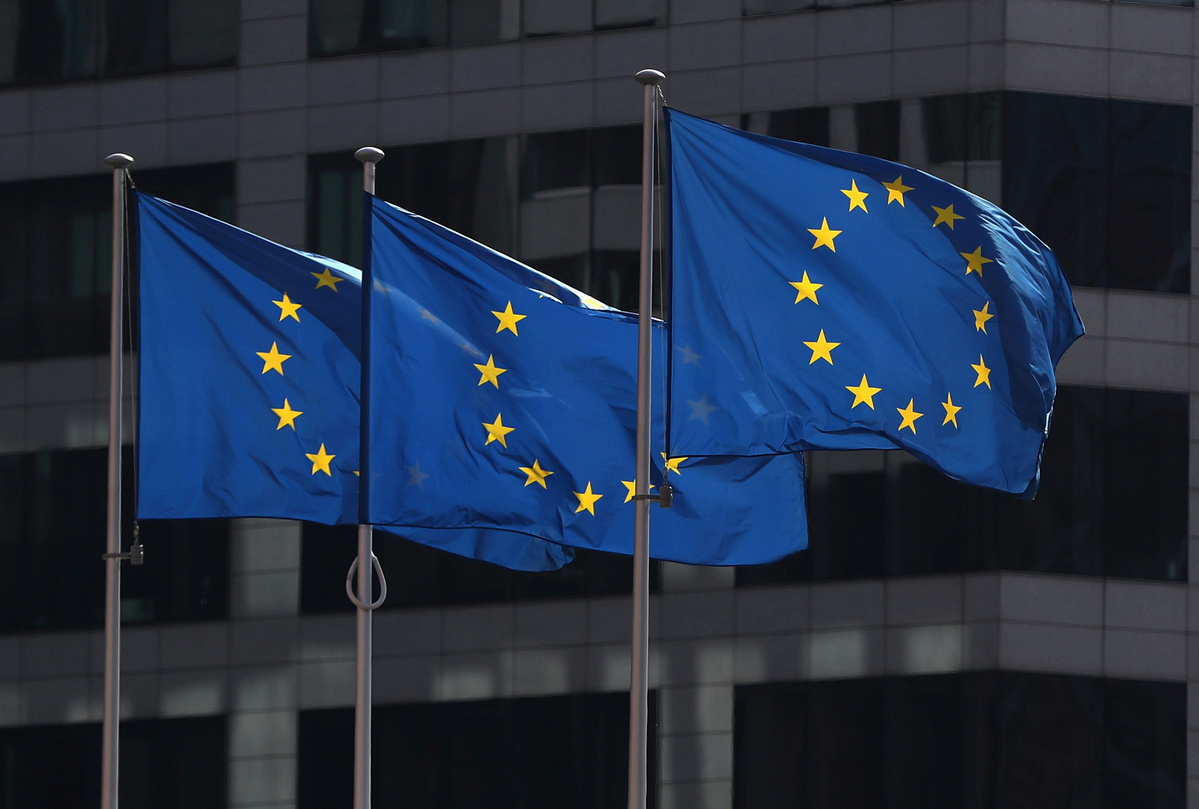Tensions over virus response expose deep rifts among EU member nations


The European Union, initially divided over its response to the economic impact of the novel coronavirus, finally got its act together in recent days to provide 500 billion euros ($544 billion) of support to member countries hit hardest by the pandemic.
But even that deal, announced on April 9, was seen as a messy compromise that failed to resolve wider debt-sharing proposals aimed at staving off a recession in the 27-nation bloc.
As the spreading disease forced lockdowns across the continent, EU governments abandoned their commitment to free movement by re-imposing national border controls and putting individual nations first, ahead of the bloc.
The crisis has exposed underlying tensions between the more prosperous, fiscally stringent north of Europe and the poorer, more debt-burdened south.
As the situation evolves, it raises the question of whether the common threat of COVID-19 has reinforced the benefits of a continent-wide union, or undermined the solidarity of the bloc.
The issue is a particular challenge for the 19 European states that share a common currency, the euro.
Italy and Spain, supported by France, Ireland, and others, failed in their push to pool EU borrowing in order to confront an expected recession in the pandemic's aftermath.
Northern governments, led by Germany and the Netherlands, baulked at the issuance of so-called coronabonds, for fear it would open the door to the eventual sharing of all the bloc's sovereign debt burden, with their taxpayers propping up what is perceived as the more free-spending south.
Under such a burden-sharing policy, the biggest share of support would inevitably go to the neediest countries in order to finance health, prop up businesses, and pay the jobless.
Divisions over policy coincided with indications that not even the richer, northern countries ware immune.
Ahead of a video conference of finance ministers that led to last week's compromise deal, the Italian prime minister, Giuseppe Conte, said tackling the economic challenges was an existential question for the EU.
"It's a big challenge to the existence of Europe," he said. "If Europe fails to come up with a monetary and financial policy adequate for the biggest challenge since World War II, not only Italians but European citizens will be deeply disappointed."
The disillusionment with the lack of EU solidarity was most marked in Italy as the death toll mounted there in early April and threatened to overcome the country's health system.
Politicians there, including the most pro-European, complained that Italy had been abandoned by its partners in its hour of greatest need. In one poll, almost seven in ten Italians surveyed said they believed being part of the EU was a disadvantage for their country.
The mood gets darkened amid reports that Czech Republic authorities had seized a consignment of 100,000 Chinese facemasks destined for Italy. The incident turned out to have been the result of a bureaucratic mix-up but, in terms of pan-European goodwill, the damage was done.
Nicole Gnesotto, the French vice-president of the Jacques Delors Institute think tank, said: "The EU's lack of preparations, its powerlessness, its timidity, are staggering. Of course, health is not part of its competency, but it is not without means or responsibility."
EU institutions such as the European Commission in Brussels have, meanwhile, come under fire for failing to prepare in advance for the inevitable advance of the pandemic, and for initially regarding it as a problem only for China.
Such institutions did indeed take action but the response was uneven. The European Central Bank came up with a 750-billion-euro bond-buying program by mid-March to prop up the euro, but the EU has yet to seize the reins of fiscal policy in order to cope with recession.
The measure was hailed at the time as an operation to bail out Italy but for the southern Europeans it did not go far enough.
It is too early to assess the long-term political impact of the response-or lack of it-of the EU and its member states.
The crisis erupted at a time of increasingly anti-EU populism in much of the continent and follows Britain's controversial decision to quit the bloc.
Shada Islam, a director of Friends of Europe think tank, told the UK's Guardian newspaper: "So far, it is not Europe's finest hour. As solidarity becomes a hollow mantra, the EU brand is tarnished."
It is little consolation to the EU that the response across the Atlantic in the US has been even more inept and nation-focused, or that Brexit Britain may be headed for the highest death toll in Europe.
There is little doubt that the continent failed to live up to its rhetoric of solidarity when it faced the moment of truth and some soul-searching will be in order once the crisis has passed.
































